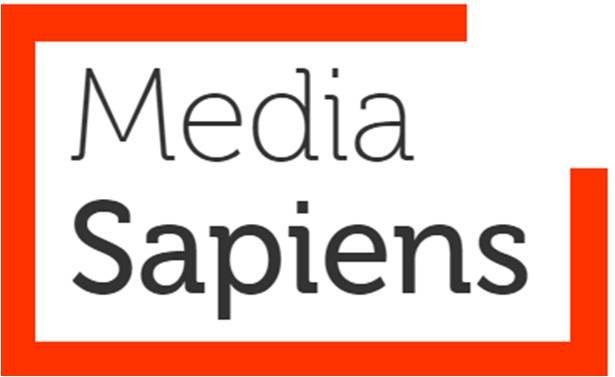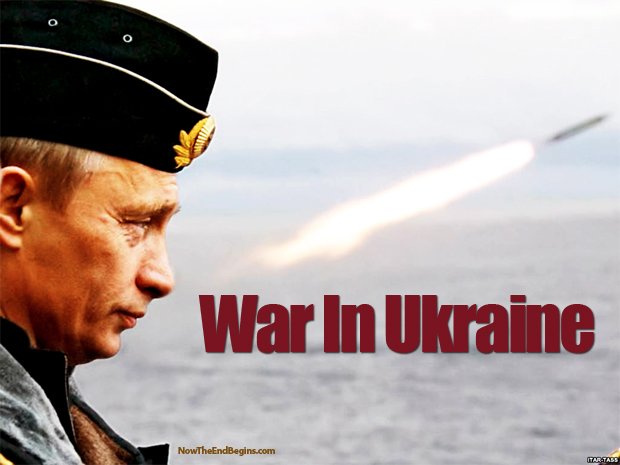Схожі новини
 Internews’ annual media consumption survey shows a dramatic drop in Ukrainians’ use of Russian media. The survey shows that Russian TV viewership shrank to 8% from 27% in 2014, and Russian internet use slid to 27% in 2015 from 44% in 2014. While lower consumption rates for Russian TV might be partially explained by the Ukrainian government’s initiative to ban transmissions of Russian TV signals within the country, internet access has not been restricted.
Internews’ annual media consumption survey shows a dramatic drop in Ukrainians’ use of Russian media. The survey shows that Russian TV viewership shrank to 8% from 27% in 2014, and Russian internet use slid to 27% in 2015 from 44% in 2014. While lower consumption rates for Russian TV might be partially explained by the Ukrainian government’s initiative to ban transmissions of Russian TV signals within the country, internet access has not been restricted.
 Internews commissioned a qualitative research on implementation of media literacy course in secondary schools of Ukraine. The study held in March-April 2015, aimed surveying teachers and students at root level to understand barriers and prospective in applying media literacy course at practice.
Internews commissioned a qualitative research on implementation of media literacy course in secondary schools of Ukraine. The study held in March-April 2015, aimed surveying teachers and students at root level to understand barriers and prospective in applying media literacy course at practice.
Conducted in cooperation with European Research Association (ERA), the research revealed that media education in secondary schools is implemented through successful combination of efforts of Academy of Ukrainian Press that trained OIPE coordinators/teachers at its schools and the Institute for Social and Political Psychology of National Academy for Pedagogical Sciences that developed the national experiment for 80 schools of 10 oblasts of Ukraine.
 Telekritia published English translation of its survey of media consumers in eastern and southern regions of Ukraine. The survey conducted by Kyiv International Institute of Sociology (KIIS) aimed analyzing an influence of Russian propaganda on eastern regions of Ukraine including occupied areas. Researchers also asked about people's perception of political situation in Ukraine. The Telekritika/KIIS survey was supported by the Department for Rights and Labour (DRL) of US Department of State through Internews Network.
Telekritia published English translation of its survey of media consumers in eastern and southern regions of Ukraine. The survey conducted by Kyiv International Institute of Sociology (KIIS) aimed analyzing an influence of Russian propaganda on eastern regions of Ukraine including occupied areas. Researchers also asked about people's perception of political situation in Ukraine. The Telekritika/KIIS survey was supported by the Department for Rights and Labour (DRL) of US Department of State through Internews Network.

Internews published needs assessment report “UNDERSTANDING INFORMATION AND COMMUNICATION NEEDS AMONG IDPs IN EASTERN UKRAINE that resulted from the 2-week trip of Internews Senior Humanitarian Advisor Jacobo Quintanilla and Internews Ukraine project manager Vitali Moroz to the East of Ukraine. From January 20-30, 2015, an Internews assessment team carried out a rapid assessment with displaced populations and host communities in eastern Ukraine to understand their information needs and access to communication channels.
 August 2014 - Internews publisized an online survey of Ukrainian journalists to study journalists’ conception of standards of journalism, interaction with media audience, journalists’ perception of condition of freedom of speech, external and internal factors, that have an influence on quality of journalists’ work and implementation of their role in society, including labor relations, level of job compensation, ethical principles of journalism, level of journalists’ professional knowledge and knowledge of media legislation concerning access to public information, defamation, handling with personal data etc.
August 2014 - Internews publisized an online survey of Ukrainian journalists to study journalists’ conception of standards of journalism, interaction with media audience, journalists’ perception of condition of freedom of speech, external and internal factors, that have an influence on quality of journalists’ work and implementation of their role in society, including labor relations, level of job compensation, ethical principles of journalism, level of journalists’ professional knowledge and knowledge of media legislation concerning access to public information, defamation, handling with personal data etc.
 MediaSapiens translated analytical overview about Russian media coverage of war conflict in Eastern Ukraine. Read about lie and falsifications in Russian news spread through TV channels and online media. Photo credit: http://www.nowtheendbegins.com
MediaSapiens translated analytical overview about Russian media coverage of war conflict in Eastern Ukraine. Read about lie and falsifications in Russian news spread through TV channels and online media. Photo credit: http://www.nowtheendbegins.com
 New research reveals that a clear majority of Ukrainians in Donetsk oblast (region) are watching both Ukrainian and Russian TV news, although trust levels of the population in Ukrainian TV is low. . Around the rest of the country, people prefer to get their news from Ukrainian TV channels. The survey in 10 regions of Ukraine was commissioned by Internews and conducted from April to June 2014 by marketing and research firm InMind for the USAID-funded Ukraine Media Project (U-Media).
New research reveals that a clear majority of Ukrainians in Donetsk oblast (region) are watching both Ukrainian and Russian TV news, although trust levels of the population in Ukrainian TV is low. . Around the rest of the country, people prefer to get their news from Ukrainian TV channels. The survey in 10 regions of Ukraine was commissioned by Internews and conducted from April to June 2014 by marketing and research firm InMind for the USAID-funded Ukraine Media Project (U-Media).
 The Internews is seeking a Content Analysis Expert /Expert Group to assist in implementation of a three-year project Strengthening Investigative Reporting in Ukraine (SIRU). The Content Analysis Expert /Expert Group will analyze the quality of investigative reports produced by Internews implementing partners and provide recommendations on quality improvement.
The Internews is seeking a Content Analysis Expert /Expert Group to assist in implementation of a three-year project Strengthening Investigative Reporting in Ukraine (SIRU). The Content Analysis Expert /Expert Group will analyze the quality of investigative reports produced by Internews implementing partners and provide recommendations on quality improvement.
- У-Медіа » English » Media Research » Telephone survey of investigative reporters, 2010
- Переглядів: 817
- Автор: rfgtw
- Дата: 3-02-2011
Telephone survey of investigative reporters, 2010
Категорія: English » Media Research
In accordance to the survey 2010, reporters mostly investigated corruption and self-will of local and national governors including land issues and violation of human rights by police. Journalists paid a lot of attention also to illegal privatization of enterprises and decadence of cultural and historical memorials and museums.
Each fifth report was left without attention, 61% of reports was not followed by official police or prosecutor investigations. There was noticed 12% increase in number of positive reactions on investigative reports in 2010 in comparison to 2009. Respondents noticed 37.3% of positive governors’ reactions that included further official investigations, removal of guilty officials and/or public reprimands.
Respondents informed, that authorities whose representatives were heroes of investigations, mostly reacted negatively both in public and secretly, including the pressure on the journalist. The higher level authorities in charge of this issue preferably reacted differently trying to find a solution or at least promised to fix the problem. However their actions rarely brought the problem solving and can be considered as public promotion actions for rising own image.

About half of respondents (48.2%) did not feel any pressure when conducted investigations or after publications. However, about quarter (26.2%) experienced the pressure in open form and 25.6% reported about hidden pressure like unplanned tax inspections of their media, eviction, refuse in accreditation, groundless fires, overdue wages refusal to publish other materials etc.
The surge of hidden pressure was noticed in presidential elections period. A certain number of respondents noted that concealed pressure is ‘a normal reaction that might serve as evidence that publications gave results’.

